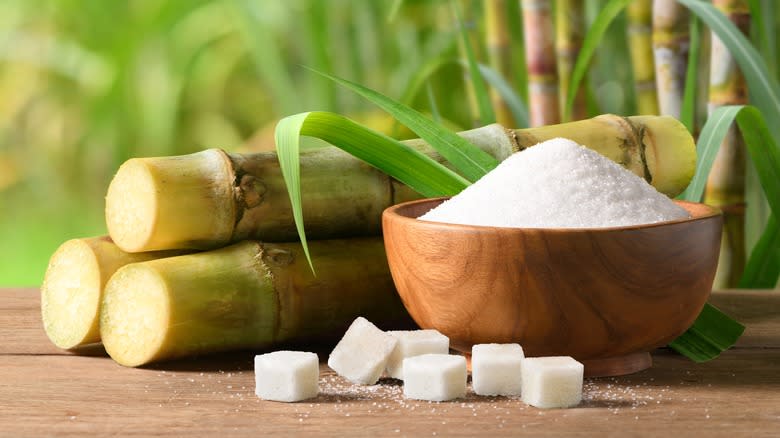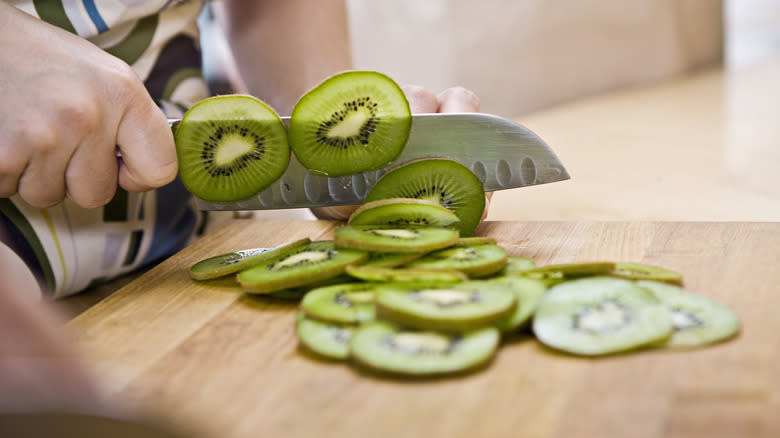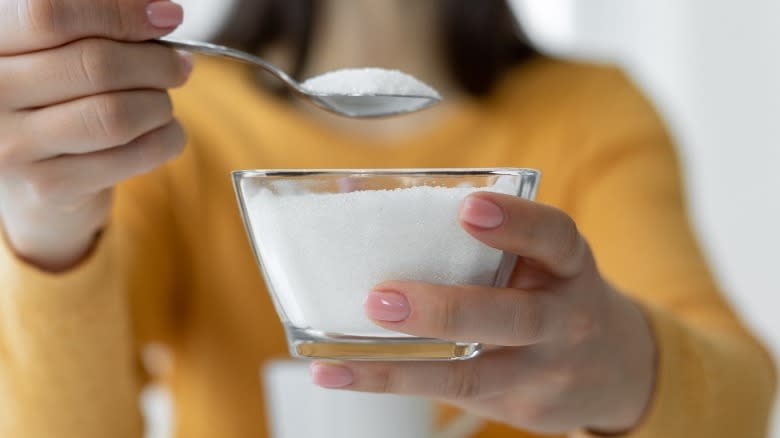What Are Refined Sugars, And How Are They Different From Natural?

It's no secret that eating too much sugar can be bad for us. In fact, excess sugar consumption can contribute to harmful conditions such as cardiovascular issues, type 2 diabetes, and hypertension. But you've probably heard that a ton of foods contain natural sugars in them as well. So, if you're looking to reduce your sugar intake, should you just subsist entirely on rainwater and unseasoned celery?
Not at all. The key lies in knowing the difference between natural sugars and refined sugars. It's easy to get confused when there are so many different terms for sugar -- how do you tell the difference between sparkling sugar and regular sugar, for example? But luckily, natural vs. refined is pretty easy to digest.
Simply put, everything you probably think of as "sugar" -- whether that's the white granulated sugar in your coffee, the powdered sugar you might use in baking, or something like high fructose corn syrup -- is a type of refined sugar (also sometimes called "added sugars"). Anything that occurs naturally in foods and hasn't been artificially produced (hence the name) is a type of natural sugar. While refined sugars can be responsible for a host of health issues, natural sugars generally aren't.
Read more: What These Imitation Foods Are Actually Made Of
Natural Sugars Are Already In Foods, While Refined Sugars Are Produced

Even if you don't know what they mean, you might've heard words like "maltose," "lactose," or "fructose." These are all examples of natural sugars; maltose is found in barley, while lactose is found in dairy, and fructose is found in fruits. We don't need to do anything to produce natural sugars as carbohydrates; they just exist in a ton of different foods. Refined sugars, on the other hand, are a creation of human endeavor. Natural plants -- usually sugarcane or beets -- are cooked down until their liquid sugar can be extracted.
This liquid is then boiled until it forms crystals. These crystals are removed from the remaining mixture, becoming the sugar you're familiar with (the brown syrup left behind in this process is where molasses comes from). High fructose corn syrup, meanwhile, undergoes an entirely different process, but it's still a refined sugar. Natural sugars aren't detrimental to your health, and, in fact, your body needs them to generate energy and stabilize your metabolism. What it doesn't actually need is refined sugar.
Refined Sugar Often Leads To Health Issues

With natural sugars, your body breaks them down slowly, allowing for a longer -- if more subtle -- source of energy over time. With refined sugars, though, your body processes them fast, leading to the elevated energy spike we know as a "sugar rush." But not all of that sugar is used for energy; when sugar is rapidly processed, your body will send some of it directly to your liver for fat storage (reasoning "Oh, we might need this to survive later"). When you build up too much of this stored sugar over time, it can potentially lead to the aforementioned health problems (cardiovascular issues, type 2 diabetes, and hypertension, among others).
It's important to note that even when sugar is added to food products, it isn't automatically just to make food taste sweet; the fact that it can act as a preservative is actually the scientific reason sugar is in almost everything. It's also not like you should never have a spoonful of sugar in your coffee if you want to reduce your intake; just be careful about how much of it you consume. And if you can, try to eat something like sweet proteins, which are totally different from sugar of any kind, for added food sweetness.
Read the original article on Daily Meal


